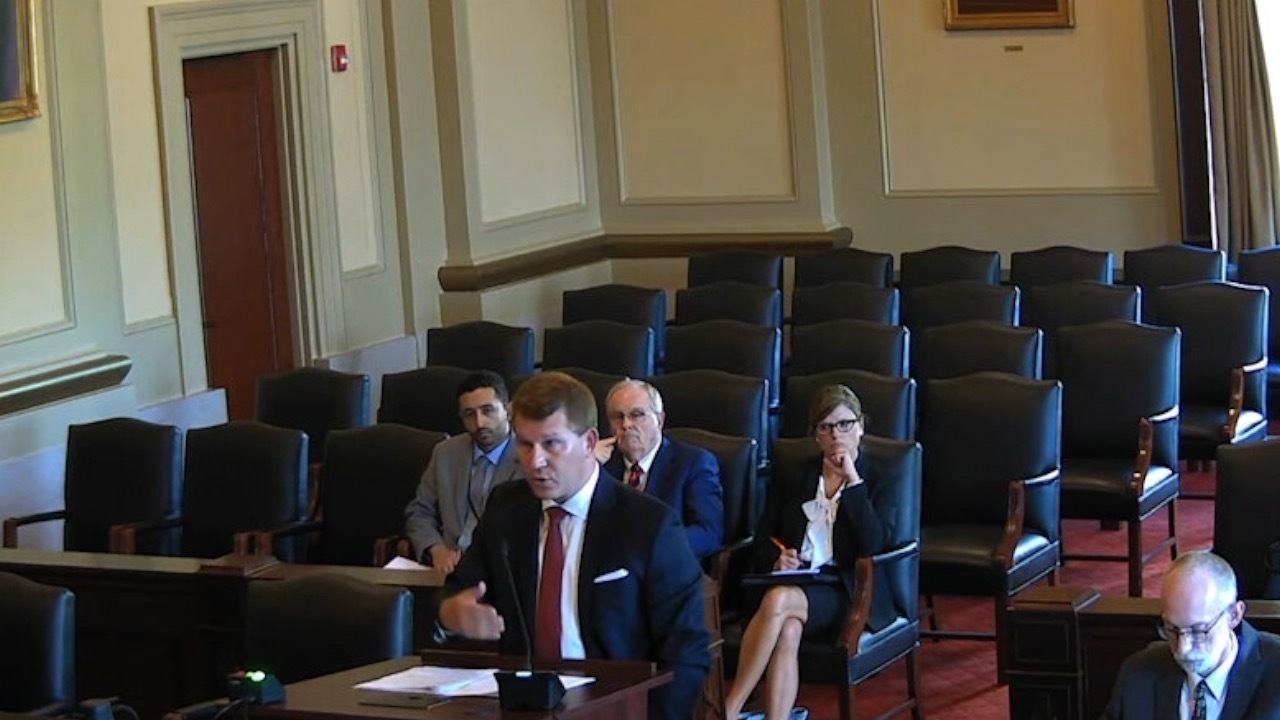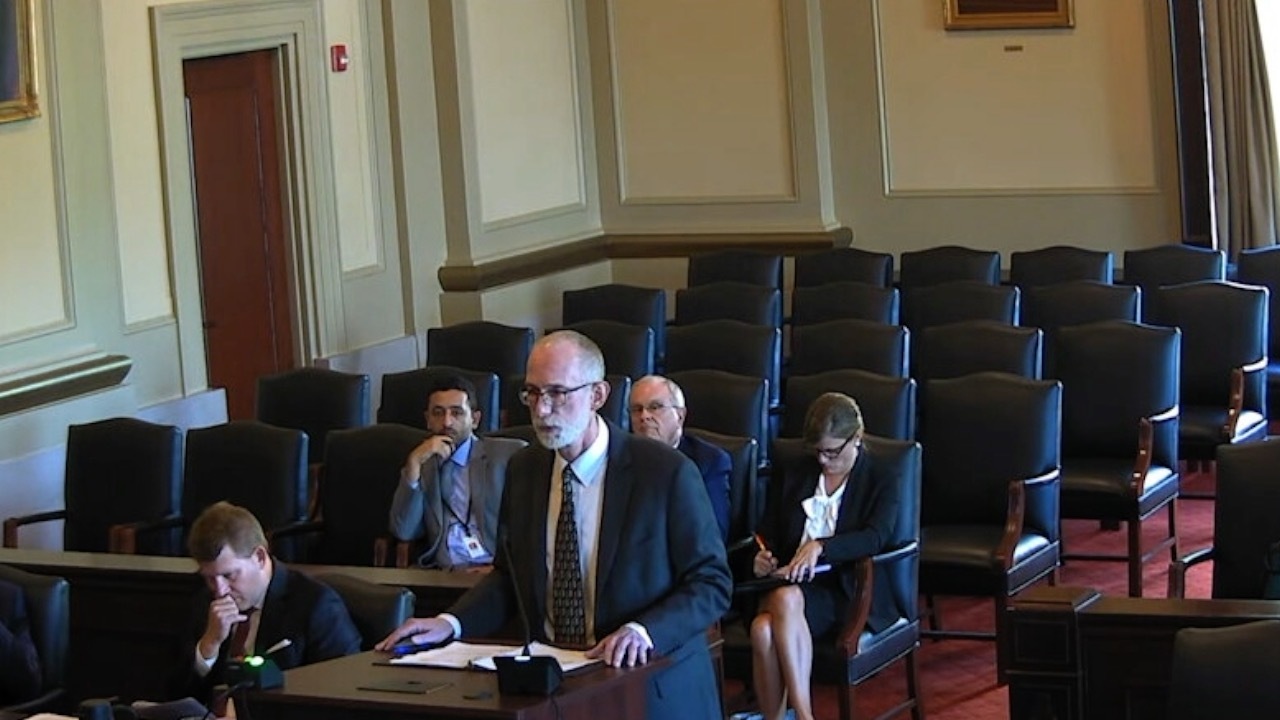- A unanimous three-judge panel of the state Court of Appeals has ruled in favor of the North Carolina Farm Bureau Federation, and against the Department of Environmental Quality, in a dispute over animal-waste permits.
- Appellate judges agreed that three challenged conditions in general animal-waste permits are invalid. They should have proceeded through the state rule-making process set out in North Carolina's Administrative Procedure Act.
- The decision affects permits for 2,000 hog, cattle, and poultry farms in North Carolina.
A unanimous panel of the state Court of Appeals has ruled in favor of the North Carolina Farm Bureau Federation, and against the state Department of Environmental Quality, in a dispute over animal waste permits.
Appellate judges agreed Tuesday with the Farm Bureau that three conditions tied to general animal-waste permits adopted in 2019 were state rules. None of the three conditions proceeded through the state’s official rule-making process in the Administrative Procedure Act. All of those conditions are invalid.
The decision reverses a trial judge and reinstates an earlier ruling from a state administrative law judge. It affects permits for 2,000 hog, cattle, and poultry farms across North Carolina. Each uses a “lagoon-and-spray-field system” to address animal waste.
“Farm Bureau specifically challenged three General Permit conditions: (1) farmers with waste structures within the 100-year floodplain must install monitoring wells; (2) certain farmers must conduct a Phosphorus Loss Assessment Tool (“PLAT”) analysis; and (3) all permitted farmers must submit an annual report summarizing the system’s operations,” wrote Judge Jeff Carpenter for the unanimous court.
Each of the conditions had been tied to a settlement agreement DEQ reached with the North Carolina Environmental Justice Network and other groups after a federal civil rights complaint.
“Here, any farmer who uses certain animal-waste management systems must obtain a permit and comply with its conditions,” Carpenter wrote. “These conditions are authoritative, as the [Division of Water Resources] has the authority to grant permits, which are required to operate the animal-waste systems. Further, the Secretary of Environmental Quality has the authority to assess civil penalties for thousands of dollars if a farmer fails to comply with these conditions.”
“Therefore, the General Permit conditions are regulations under the NCAPA because they are ‘authoritative rule[s] dealing with details’ of animal-waste management systems,” Carpenter wrote.
“The DEQ argues that General Permits are not generally applicable because farmers can obtain Individual Permits instead,” Carpenter added. “First, we question the DEQ’s premise that Individual Permits are guaranteed. Allotting Individual Permits under section 143-215.10C is within the DEQ’s ‘discretion.’ Thus, contrary to the DEQ’s suggestion, Individual Permits are not automatic.”
“Second, if farmers can avoid the challenged General Permit conditions simply by seeking an Individual Permit, all farmers would likely do so,” he added. “Following the DEQ’s reasoning would render General Permits worthless and fly in face of section 143- 215.10C: Our General Assembly expressly stated that General Permits are to be used for ‘most animal waste management systems.’”
“Therefore, the conditions within General Permits are generally applicable regulations under the NCAPA,” Carpenter wrote. “They are rules, and the superior court erred when it held to the contrary.”
“The challenged conditions are invalid until they are adopted through the rulemaking process,” Carpenter concluded.
Carpenter and Judges John Tyson and Fred Gore heard oral arguments in the case on Sept. 6.
“If the court doesn’t hold DEQ accountable here, they can continue to add regulatory burdens onto farmers through the general permit process, rather than going through rulemaking,” said Jake Parker, secretary and general counsel for the Farm Bureau.

The Farm Bureau also offered a “sue-and-settle” argument. DEQ adopted the three conditions after a 2018 federal complaint prompted negotiations between regulators and hog farm critics. Those negotiations excluded farmers.
“We engage with the department all the time,” Parker said. “That’s part of what Farm Bureau does. We’re a public policy organization. We lobby. We engage with regulators. But we aren’t engaged, as is the situation here, in a Title VI complaint process — an adversarial process that could affect the agency’s federal funding — and then using that as leverage to advance our policy goals. There’s a big difference there.”
DEQ countered that the challenged conditions aren’t rules because any farmer can seek an individual permit that might not include the condition. The department also pointed out that several other proposed conditions from the Title VI process never made it into the general permit.
“The Farm Bureau has made it clear in their time here that they do not like three of the many, many conditions that are in the animal waste permits. They do not think that the process of placing those conditions in those permits was fair to them. But the Farm Bureau’s generalized notions of fairness and their policy disagreements are not for this court to mediate,” argued Marc Bernstein, senior deputy attorney general at the NC Department of Justice.

“The question here is whether the agency did anything unlawful,” Bernstein added. “The Superior Court reviewed the facts and the law and determined that what the agency did was proper.”
Judge Fred Gore questioned a key point in Bernstein’s presentation about the challenged conditions. “Your argument is, ‘Well, not everybody has to get a general permit,’” Gore said. “But using your logic is dismissive of the fact that these should apply to every general permit, which they do. And if they do, then shouldn’t the normal rule application or implementation have gone through to attach to the general permits?”
Judge John Tyson tested Bernstein’s argument with a hypothetical situation outside the context of animal waste. “If I wanted to go get a driver’s license in North Carolina from the DMV, and the DMV imposed a condition — ‘I’m going to give you a driver’s license, but only if you go buy an electric vehicle’ — would that be legitimate?”
“Take it one step further. I want a driver’s license, but I don’t want to drive an electric car,” Tyson added. “You’re saying that the only way I could be exempt from that would be to go and apply for an individual driver’s license and not subject to the general rules.”
A split 2-1 Court of Appeals issued an order in October 2022 blocking the rules from taking effect. That order is scheduled to remain in place during the Farm Bureau’s appeal.